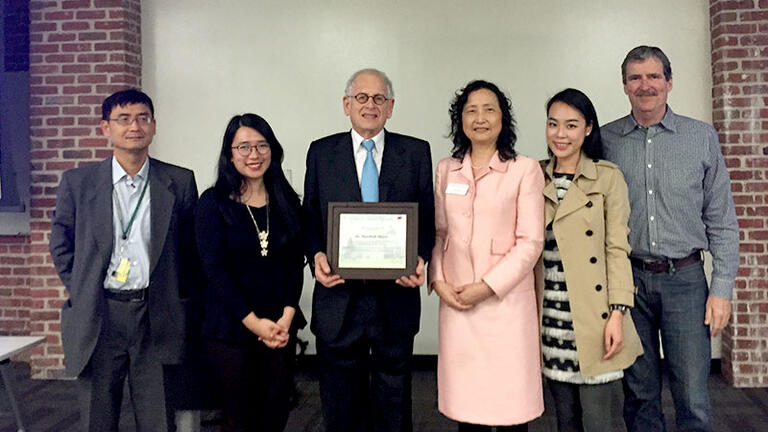Are Haier’s Management Concepts Transferable to the Acquired GE Appliance Business?
This past February, Marshall W. Meyer, the Tsai Wan-Tsai Professor Emeritus in the Wharton School of the University of Pennsylvania and a world leading China expert, delivered a lecture about Haier Group, a Chinese multinational consumer electronics and home appliances company, that purchased General Electric's (GE) appliance business and its implications for both firms, as part of the University of San Francisco’s (USF) China Business Studies Initiative (CBSI) Public Lecture Series. The series is a new program meant to give expert insights and educate on the topic of the globalization of Chinese business.
His talk, which was attended by USF students, faculty, alums and business professionals, introduced two concepts that Haier has found to be successful, micro-divisionalization and microbusiness units or MBUs. Like strategic business units of divisionalized firms, Haier’s MBUs are called Zizhujingyingti (ZZJYTs) and focus on bottom-line financial performance and results for the customer. However, unlike Strategic Business Units (SBUs), Haier’s MBUs compete in an internal market for targets and are subject to takeover or dissolution should they set targets too low or fail to meet targets.
Meyer’s research suggested connections between Chinese culture, China’s fragmented and hypercompetitive markets and the advantages of micro-divisionalization. At the same time, his study found that microdivisionalization complicated performance management, strained relations between product and manufacturing teams, and in some instances blurs the boundaries between the firm and its customers, triggering further adjustments to the organization. Meyer pointed out that Haier’s innovative management concepts that took root in China may not necessarily transferable to the newly acquired GE appliance business in the US given the huge differences between Chinese and American markets.
Article contributor: Tina Tan, CBSI graduate assistant
